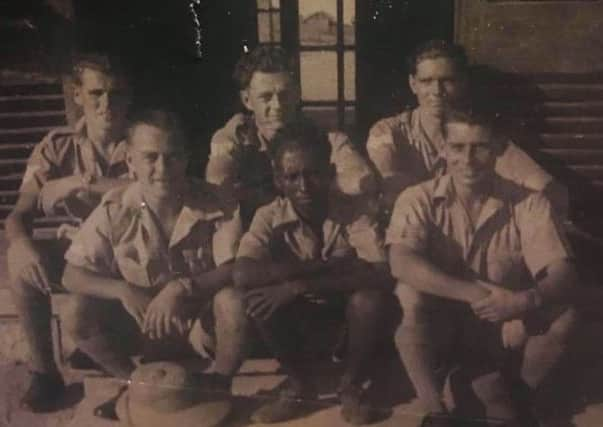Tributes paid to World War Two hero Fred Reynor who passed away


Fred was a well respected man, whom the Royal British Legion held in high regard, a World War Two veteran he told many stories about the war.
Fred joined the Royal Air Force aged 18 and served from 1941 - 1946 with 621 Squadron, Costal Command as wireless operator / Air Gunner during the War, were he initially was posted to Mombasa, Nairobi, East Africa.
Advertisement
Hide AdAdvertisement
Hide AdBefore his passing, Fred shared details of his life during the war with his family.


In his own words he wrote: “At 18 years of age I joined the Royal Air Force.
“I was in the RAF from 1941 to 1946. I was selected for Air Crew as a Wireless operator/air gunner.
“The wireless operator course was at Yatesbury Wilstshire and the Air Gunnery course at Mona on the Island on Anglesey.
Advertisement
Hide AdAdvertisement
Hide Ad“The pilots for the Air Gunnery Course were Polish. All of them were real madmen - they would flu along Blackpool Promenade nearly hitting the sand and then up and over the piers and you could see the people running for cover. The pilots were severely reprimanded for that.


“In due course I was allocated to 621 Squadron, Coastal Command and we flew out to join our Squadronb at Monbasa, Nairobi in East Africa. The squadron was eventually based at Khormakor Aden where the plans, Wellingtons, were serviced.
“Most of the flights were submarine sweeps, convoy escorts and secret individual VIP sweeps. My squadron did succeed in capturing an Italian submarine with a German crew in 1943. The submarine was damaged by a depth charge and could not submerge.
“Early in 1943 I contracted malaria and had to go into Aden Military Hospital. The bugs and mosquitos were rife out there and almost all the crews suffered in some way or other. On detachment duty we were mostly in tents and the legs of our beds wer in large bean tins willed with paraffin oil to keep the creepy crawlies from getting into your bed.
Advertisement
Hide AdAdvertisement
Hide Ad“We usually had nine hour flights and did an hour on the rear turret, an hour on the front turret and an hour on the radio and changing around every hour.


“We crash landed twice when the undercarriage would not lock down. Dangerous to the extent that the belly of the plane was loaded with depth charges and the friction and temperature made it somewhat volatile.
“My crew kept in touch for a few years but eventually we lost contact.”
Sadly Fred’s health deteriorated over the past few years and he ended up in Nicholson House where he sadly passed away.
Advertisement
Hide AdAdvertisement
Hide AdHe will always be remembered in the Royal British Legion where he bestowed his medals and they will always be on display.
Fred’s funeral will take place on Friday November 2 at St Matthew’s Church, Broomhedge at 11am. Members of the Royal British Legion will attend the funeral to say ‘Thank You’ to one of our World War Veterans, say farewell to Fred and show their support to his family.